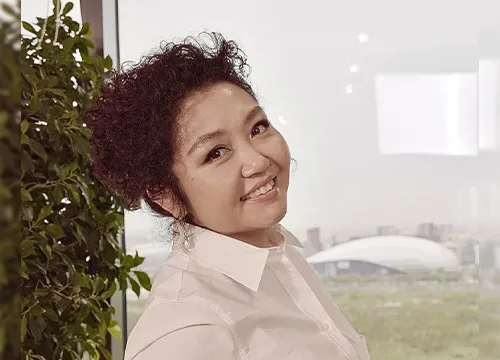Adil Soz to Deputies: You Have the Power to Change the Bill "On Mass Media"

Old habits should have no place in New Kazakhstan, and provisions restricting freedom of speech should not be in the draft law "On Mass Media." Deputies, with the support of the media and the human rights community, are quite capable of making changes to the draft law that will make it truly effective, democratic, and beneficial to society.
Karla Jamankulova, President of the International Foundation for Protection of Freedom of Speech "Adil Soz," addressed the deputies today at the round table in the Majilis on the bill "On Mass Media." She suggested that Mazhilis deputies add real legislative measures to ensure the safety of journalists, ensure that measures for labeling ads on online platforms will also apply to government order materials; ensure transparency of state funding of the media and introduce the concept of a monopoly in the media market; as well as introduce the institution of the Ombudsman for Freedom of Speech and abandon the idea of press cards. "Adil Soz" is ready to provide the deputies with its assistance in the development and introduction of these changes.
Below is the full text of the speech.
Dear Mr. Chairman, Dear Deputies,
I thank you for the opportunity to speak today regarding the draft law "On Mass Media." I was asked to keep my speech brief, within three minutes, so I will focus on the main points.
Indeed, this is an important law for the media market, and we all hope that with your support, this law will truly be a new law, not just a merger of two existing laws: the Law on Mass Media and the Law on Television and Radio Broadcasting.
Adil Soz has been operating in the market for 24 years, and of course, we actively participated in the working group on the draft law under the Ministry of Information. I want to share with you two important lessons I learned from this work.
First Lesson: If the truth is on your side, then everything is possible, even if you were told that something is impossible.
When the Interdepartmental Commission removed the restrictions on the limitation period for claims against the media from the draft law, we were told that this was a non-property right and that limitations on the limitation period were unacceptable. But we didn't back down. We referred to international experience and practice, demonstrating the disastrous consequences for professional journalists. Complaints that come in after a year almost never relate to issues of insulting personal dignity; they mostly involve monetary interests. Ultimately, the statute of limitations was reinstated, but with a limitation of three years.
Dear deputies, many of you were journalists in the past, and you know better than me how prohibitively expensive and challenging it is to keep all the records and archives. Limiting the statute of limitations for defamation to one year is reasonable. If we all understand this, I hope, dear deputies, that you will make this possible.
The second lesson is that in the new Kazakhstan, there should be no place for old habits.
Perhaps respected deputies will ask us, reproach us, representatives of public organizations, industry professionals, why we could not complete the work on the draft law "On Mass Media" within the framework of the working group under the Ministry of Information. Why are we turning to you today, dear deputies, to make this law truly new, strengthening the rights and freedoms of journalists and the information security of Kazakhstan? Unfortunately, because in the last months of working on the law, we have been fighting against "windmills." You have probably read in the media about the anti-constitutional idea of introducing censorship under "special conditions." Anything could fall under these so-called "special conditions," from the explosion of a boiler at a thermal power plant to any other situation that could occur as a result of the negligence of local authorities. The silence of censorship is the best way to undermine the foundations of our state.
But there is no place for old habits in New Kazakhstan. Whoever was the author of those very proposals, I hope that, like me, he learned this lesson. I believe that you understand better than others that the old methods cannot build a new system.
You have every opportunity to make this law truly important, to propose real measures to protect the safety of journalists, not on paper, but through legislative measures to strengthen the very ideological sovereignty of the country, which President Tokayev spoke about in his message of March 16, 2022.
Experts and human rights activists are ready to join the work in the working group, and we will be happy to offer in writing our vision on such issues as the procedure for refuting or labeling advertising, ensuring the transparency of state subsidies and grants for the media, or conducting a search of journalists or editorial offices exclusively with a court order. We are confident that the situation with freedom of speech and the safety of journalists requires the establishment of an Ombudsman for Freedom of Speech. On all these and other points, as I have already said, we are ready to submit written proposals.
British philosopher John Ruskin once said, " When we build, let us think that we build forever." May future generations thank us for our work. There are many talented and creative professionals working in the media field today. They don't ask for money or support. All they need is not to be disturbed.
We need to strengthen the competitiveness of the media because democratic transformation is impossible without independent and responsible media. These are not my words; President Tokayev also said this in the same Message to the people of Kazakhstan.
Thank you for your attention!





